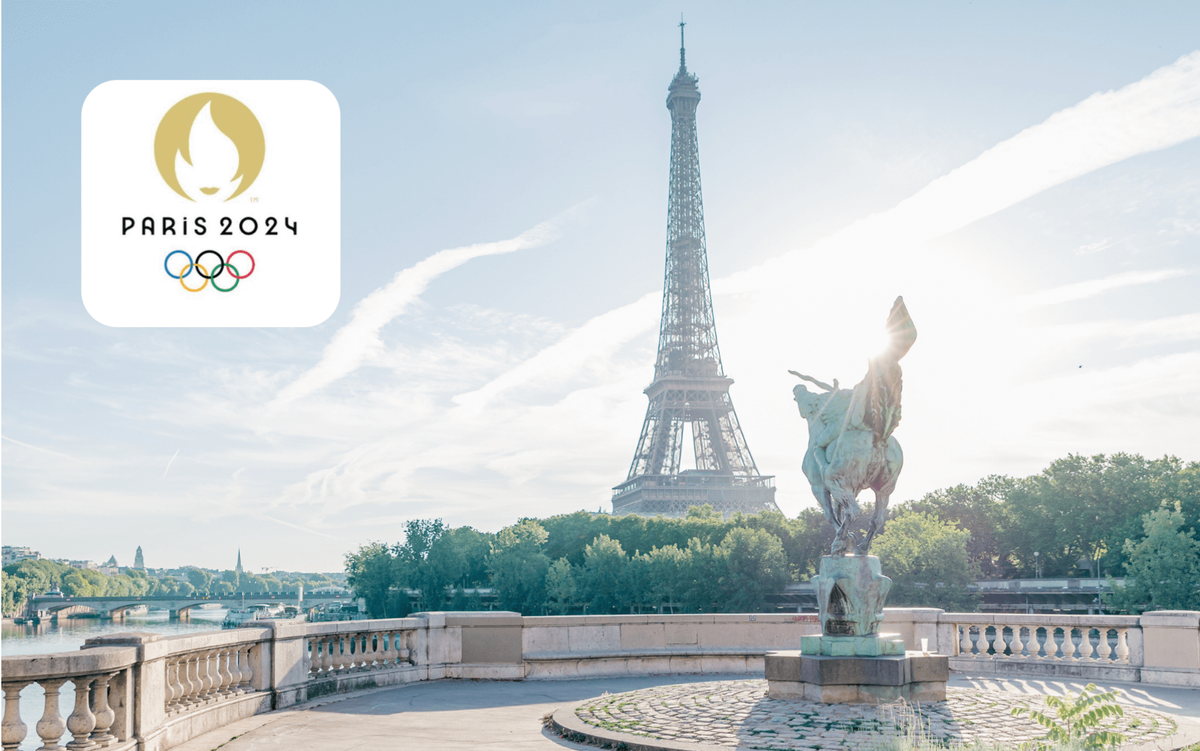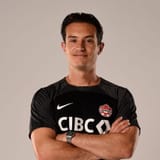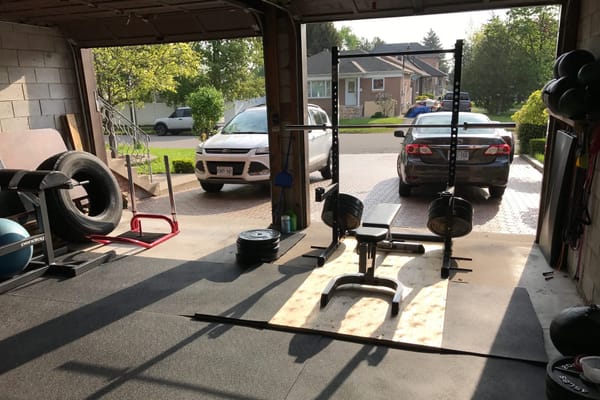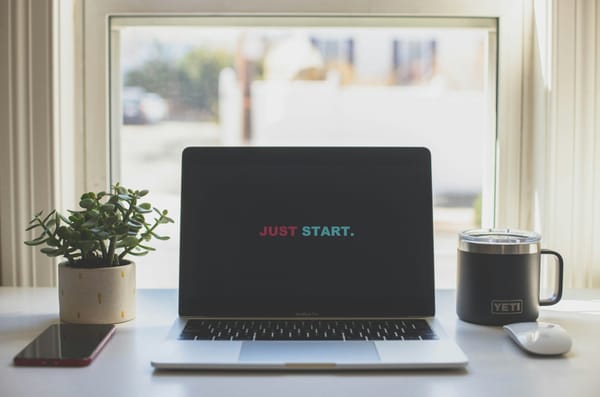The Olympic Journey to Paris. Part 2: Embracing Commitment
Part 2 of this Olympic series outlines a second critical factor for maximizing performance - commitment. I discuss what commitment means for performance and provide examples from the Olympic athletes I work with.

The Olympic games are now just a few short weeks away. As each day passes and we get closer, the focus gradually shifts to competition mode. Athletes are slowly beginning their visualization processes, and the final training sessions are being written.
Both swimming and soccer are now underway with their preparation camps respectively. These camps are the last leg of the journey to Paris. As we approach this period, it’s a fitting moment to reflect on what it took to get here.
Preparation for the games begins years in advance. With only 3 years between the last summer Olympics and this year’s edition, this cycle was shorter than most. Just a year removed from winning gold at the Tokyo Olympics, the women’s national team (WNT) aimed at qualifying for both the 2023 Women’s World Cup and Paris 2024 in the summer of 2022. The stage was set for my first tournament with them (no pressure!). I remember that summer very clearly and thinking to myself along the way – is this really happening?
The opportunity to support the WNT towards two pinnacle events is the reason I left a full-time role in university sport. It was a dream come true to travel the world with Team Canada at a World Cup and Olympic games – one that I knew would unlock future opportunities for me in high-performance sport. Little did I know, I wouldn’t have to wait very long.
Swimming Canada was part of my portfolio of teams at the university, and when I told them that I would be leaving my position to work with the WNT, they came back and offered me an expanded role to continue with the center. The opportunity to be part of rebuilding the high-performance center in Vancouver (HPC) leading up to the Olympics was a win-win. I would travel with the WNT and work with the HPC between camps while home in Vancouver. The vision was set, and I was fully committed to seeing it through.
That commitment would lead to many opportunities to be a part of something special. One of those opportunities was the U20 Women’s World Cup in Costa Rica in 2022. Here I would meet two young stars, Simi Awujo and Jade Rose, who would transition to the senior national team after that tournament.
To accelerate their integration into the senior team, they received supplemental support from all four corners (technical, physical, medical, mental). I was the physical lead for a select number of athletes, in what we call our Talent Acceleration Program, with the goal of them being contributors to the Olympic team in 2024. All three of them (Simi, Jade and Sydney Collins) were selected to the 18-player roster which is a testament to their dedication and growth over the last few years.
The commitment required to make an Olympic team goes beyond just showing up for team trainings. You must be willing to make the sacrifices and do the little things outside of practice. Sometimes, that includes working out on vacations. I remember speaking to Simi in camp a few short weeks after her spring break vacation in Utah with some teammates:
“Glad you got a chance to get away. Were you able to do the running workouts I gave you?”
“Yeah, I did them. I did the first run with my teammates, and once we started the intervals, some of the girls started struggling a bit. I just kept going and they were like “how are you able to keep this pace!”. I mean it was kind of hard because of the altitude, but I pushed and finished the last couple reps on my own. They didn’t want to run with me after that, so I did the rest by myself”.
We laughed about it, talked about how hard the runs were, and in that moment, I realized something. Commitment at this level requires going above and beyond the typical ask - and in those challenging moments, the cream rises to the top.
The importance of consistency is often talked about and prominently featured in many coaching philosophies, including my own. From a physiological perspective, there is no adaptation without regular stressors to the system (i.e. weeks of challenging training sessions). The same goes in skill acquisition – repetition is a key feature of skill development and expertise. Consistency deserves the attention it receives in the coaching and performance world.
What isn’t as commonly discussed is the importance of commitment.
If belief is where the preparation process begins (see part 1), commitment is the compass that keeps you on track. It is commitment that leads to consistency, which is at the heart of any sort of progress.
Commitment sets the intention that you put into your training. It’s the difference between quality and quantity - you might show up consistently and put in the work (quantity), but how you put in the work matters (quality).
Coaches plan the work, often assuming that athletes are committed to the training process. While it’s a safe assumption to make, you should not assume and should diligently provide clarity about your vision for the program. In most cases, you’ll need to make that tangible and actionable for each athlete. Goal setting meetings are a great place for this, and from my experience, this is the greatest time investment you can make.
When it came to transforming the gym culture with the HPC, everyone had a part to play. Because I was not going to be present for every gym session, the athletes and coaches required a clear understanding of the program and expectations for each session. This starts with how you structure and deliver a gym program, to the habits and behaviours you reinforce. My vision was clear – the athletes needed to be able to train without me, and that meant they needed to take ownership of the process. The athletes bought in, and over time, these physical improvements would begin translating to the pool.
As more athletes from the center began to make national teams and compete at major events, their belief grew. With this, their commitment to the training process solidified. When you see belief and commitment manifesting in your athletes, it reinforces the importance of these principles in the training process.
As a coach, we must be equally committed to the athletes we are serving as they are to the program. This behaviour modelling can go a long way over time. This might be one of the few virtues I possess as a coach; I believe it is the root of the meaningful relationships I’ve developed with athletes and coaches over time.
From an athlete perspective, I’ve experienced a masterclass demonstration of what commitment looks like from those I’ve been supporting towards the games. There are no excuses. They believe, commit to the plan, and execute to the best of their abilities.
To illustrate this point, I think of a swimmer who joined the center in Vancouver this year, Finaly Knox. He is one of our top Canadian male swimmers with eyes set on a second Olympic games.
Joining a new group, with a new coach, was a bold move to make in an Olympic year. What’s impressed me most is that Finlay remained wholly committed to each component of the program – even through the growing pains.
I remember a conversation I had with Finlay very clearly just a few days after he won gold in the 200m individual medley at the 2024 World Championships. I set up a call with each of the athletes competing to debrief how they felt their taper program went as it was completed in Doha. I was away with the women’s team; we were set to play USA in the Gold Cup Final later that night. I asked:
“So Finlay, we did things a bit differently because we had to get back to training right after Worlds with trials 10 weeks away. How did you feel that went?”
“You know Joe, I used to stress about every little detail of taper and over think my preparation. I’ve kind of learned from that and made a decision to fully trust and believe in the process. You’re the expert in the gym, we have experts in every area, and I fully trust in whatever you tell me to do. At the end of the day, I have to race and be mentally ready to execute. I know you and the coaches will do everything to get me there. Taper went great and I appreciate the call. Good luck tonight in the match, where can I watch it?”
I’ve got to be honest; I was taken back on the call. It was insightful to hear Finaly discuss belief and commitment in his response – which through reflection, have helped solidify the two themes for this Olympic series.
On a personal note, being committed to this journey has meant a lot of sacrifice. When I started travelling with the WNT, I realized how difficult it is for these athletes to perform on a consistently high-level all year round. They are constantly travelling the world, away from their homes, and have the pressure of high expectations. I do realize that these challenges are privileges, but it does highlight the nature of what high-performance athletes go through. The same goes for the staff who support them.
While it hasn’t been easy at times, I am better for it. Travelling with both swimming and soccer has given me a level of insight into sport and coaching that has far exceeded what I gained from my years in the gym or on-field with teams. The pressure of pinnacle events brings challenges that can lead to wonderful learning and growth opportunities to get better.
It was a dream of mine to support athletes on their journey making an Olympic team. Knowing I played a part in the journey of some of our top swimmers and soccer players is a blessing and something I am proud of.
Conclusion:
My journey to the Olympic games has taught me invaluable lessons about coaching and performance. By focusing on the less tangible (and sometimes overlooked) qualities of belief and commitment, I’ve highlighted skills that are well within our reach, and arguably, make the difference when all else is equal.
In my personal coaching journey, I’ve experienced the power of belief and commitment firsthand. There have been times where my belief has wavered, my commitment challenged, but I’ve persisted with my vision. My personal experiences, coupled with the insights I’ve gained from working with Olympic athletes and teams, has truly had a transformative impact on my coaching philosophy.
The moments I’ve taken to write and reflect on the journey to the games have helped me gain a newfound perspective on my experience and deepen my appreciation for the incredible opportunity I have before me. Now is the time to embrace and cherish the present moment before writing the next chapter.



